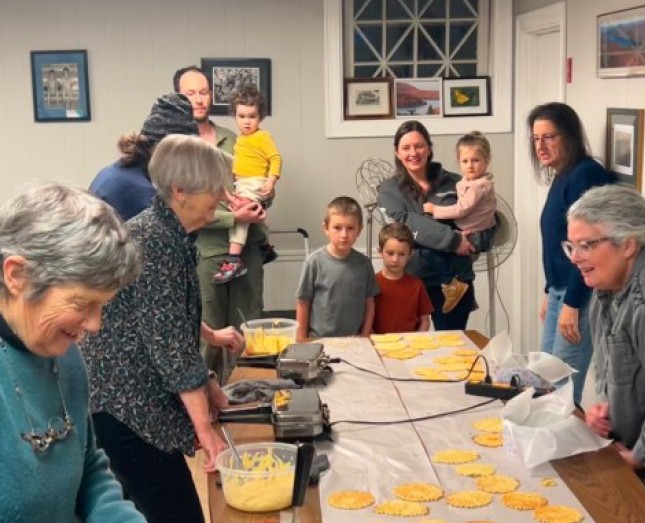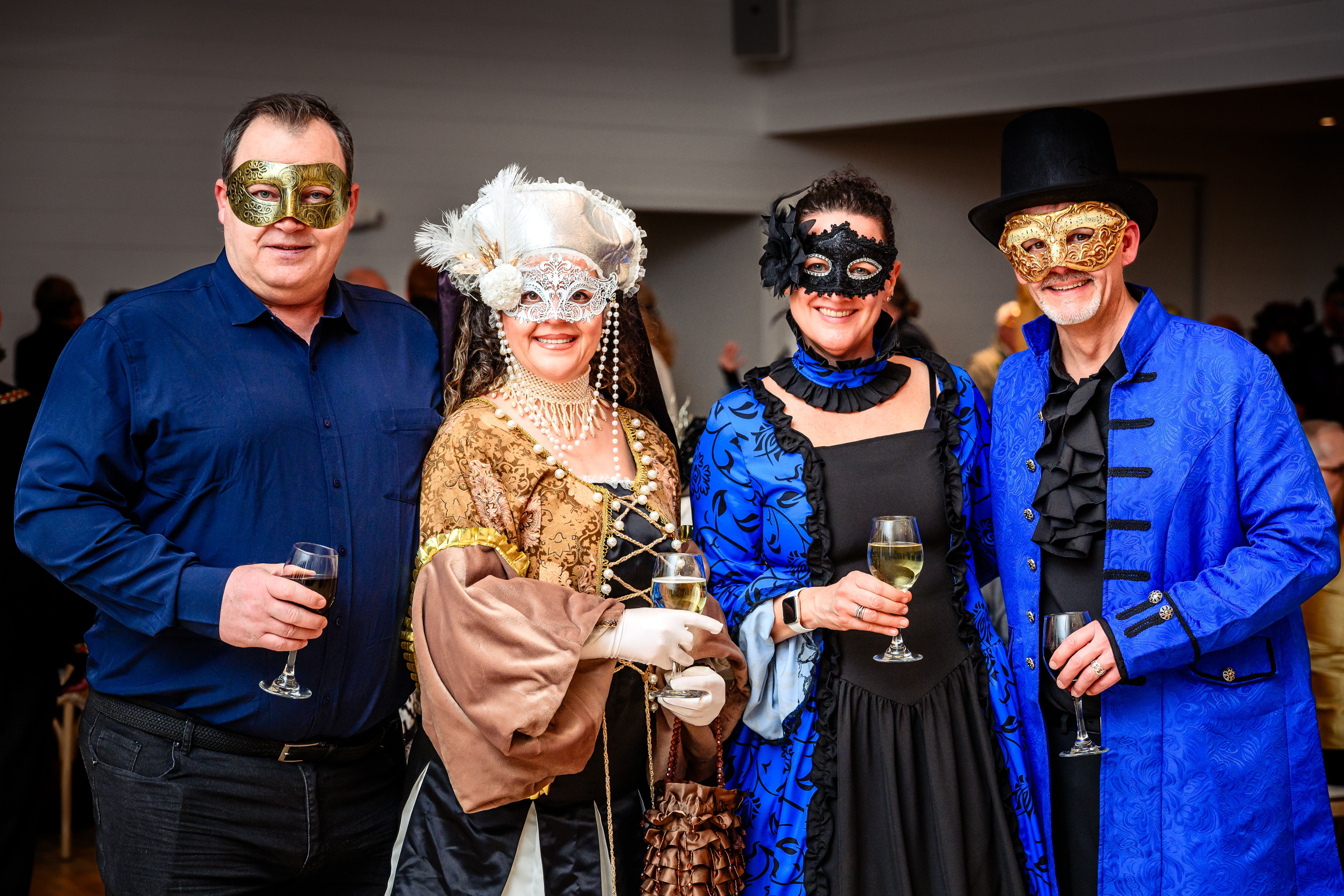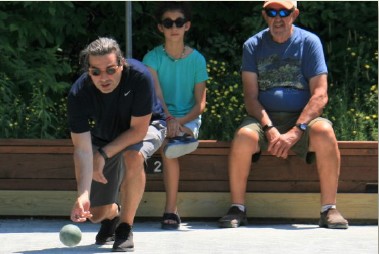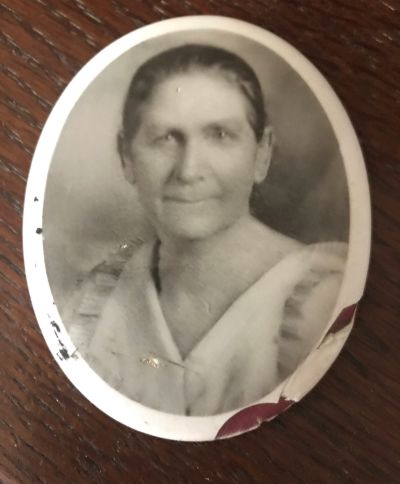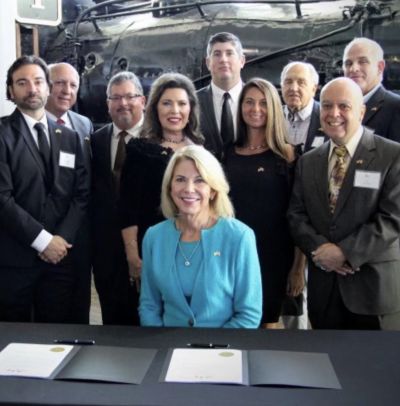The history of Vermont's Italian American community was shaped in stone and later bulldozed in the name of progress. But in the end, those were only structures, for its spirit lives on, thanks in part to the efforts of the Vermont Italian Cultural Association (VICA).
Starting in the 1880s, skilled stone cutters and carvers from Northern Italian cities, including Carrara, emigrated to the state, pursuing high-paying jobs in a place with hills and lakes reminiscent of their home. Many found work carving headstones at the Vermont Marble Company, which had operations in Proctor and Rutland. Later, more Italian immigrants settled in Washington County's Barre, the self-proclaimed "Granite Center of the World," where they worked the quarries and carving sheds.
As the Italian immigrant population grew, families gravitated toward Vermont's largest city, Burlington, and formed what would later become known as its Little Italy. However, starting in the 1960s, the city embraced a philosophy of urban renewal and razed over 140 homes, businesses, community centers, schools, and gardens in favor of new commercial developments.
While the Greater Burlington Italian American community lacked a physical heart, its love and devotion to its heritage inspired VICA's launch in 1983. The group's passionate push to preserve connection and identity has evolved into a statewide network that partners with cultural organizations, such as opera companies, film festivals, music groups, and authors, to deliver Italian-themed events and programming.
VICA President Lisa DeNatale moved to the Green Mountain State 25 years ago. For her first 15 years, she was largely unaware of its Italian presence. Once she discovered the rich heritage and history, the descendant of Sicilians from the Enna Province town of Pietraperzia felt called to preserve it.
Lisa shared more about Vermont's connection to Italy, the organization's history and current offerings, and her leadership goals.
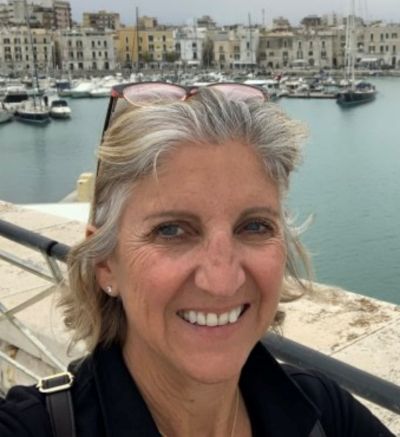
VICA President Lisa DeNatale in Venice, Italy
Tell us more about Vermont's Italian immigrant history.
To tell that story, I have to say a little bit about my own background because I'm half Sicilian; my grandparents came from Sicily. My father, Giuseppe Salvatore DeNatale, was born in the U.S. I grew up outside Boston, where there's a very large, prominent, and active Italian and Italian American community. It was common for us to get together with my grandparents for Pasqua, name days—you name it. And it was always a very important part of my life.
I met my husband and moved to Portland, Oregon, where we stayed for 10 years. We moved to Vermont 25 years ago, totally unaware that there was really an Italian community here, and stumbled upon it after being here for 15 years or so.
I guess it just never occurred to me that there would be an Italian community in Vermont. It was not the place you heard about Italian immigrants coming to. But as I've learned, it was an important destination for Italians, primarily those from the north initially.
In the late 19th century, Vermont had granite and marble quarries. When these were discovered and/or developed, they needed skilled carvers. A large population of Italian immigrants, mainly men, came here from Carrara and many northern towns, and then more came from the Naples area. They came to Barre (not to be confused with Bari, Italy) and the Rutland area, where the quarries were.
They had a very strong Italian immigrant presence in Barre, where they built the Socialist Party Labor Hall. One testament to the work of these men is Hope Cemetery, where many Italian immigrants are buried. It's also where many stone cutters cut their monuments and mausoleums, so it's really an outdoor museum.
From the late 19th to the early 20th century, there was a great Exodus from Italy; more and more people came here to support Italian families and businesses. Some came to Burlington and formed a tight-knit Italian neighborhood. They might have started as fruit peddlers and then opened markets and businesses.
There was a very strong Italian community here in Burlington, where Italian was heard on the streets. What has remained is this very strong Italian culture, Italian tradition, and an appreciation for what Italian immigrants brought to Vermont.
The Vermont Italian Cultural Association is the primary organization whose mission is to preserve and promote Italian culture so that we don't forget that Italian immigrants made many important, lasting contributions to Vermont and the country.
I was doing some research and discovered that Stanley Tucci's paternal grandparents first came to Vermont. They settled in Northfield. His grandfather learned how to cut and worked in the slate sheds. He came when he was 14 years old, which was when many came to this country, met his wife, married, and lived in Northfield, Vermont, until they moved to New York, where they opened a monument company.
I'm sure there are many stories like that of others who came here and since moved on to other parts of the country and became prominent carvers and stone cutters for many of the monuments you see throughout the United States.
VICA members make pizzelle.
How and why was the VICA founded?
Some Italian Americans and Italians came to Vermont, some to teach at the university, and they were leaving places like Philadelphia, New York, and Boston. When they came here, there was no organization. They believed they were drawn to one another and felt it was really important to form a community and begin to recognize the contributions, culture, and heritage that preceded them.
We just celebrated 42 years since the organization was created. It didn't start as a nonprofit. It started with people getting together in someone's living room or a local community center. It's been about 23 years since we officially became a 501 (c) 3.
We're an all-volunteer organization. We don't have any paid staff. We don't have a building or a hall where you can have events. The organization was really founded by families and individuals in the Greater Burlington area. It's the largest city in the state and home to many colleges and universities. So it was started here, but our membership is statewide. We have members living outside the state because we offer virtual programming. We also have a number of business partners who are spread throughout the state. Those partners are a combination of Italians and Italian Americans who opened businesses producing or selling Italian products. Several native Italians here in Vermont make salumi and pasta, bringing all the Italian traditions and methods to Vermont. Because we don't have a physical space, these partnerships allow us to really have a large footprint in the state.
VICA Carnevale
What events and activities do you host?
Vermont is not a large state—we have fewer than a million people. It's easy to network, so we have been creating business partnerships and relationships with cultural organizations. We have several opera companies here, the International Film Festival, and Upper Valley Baroque. There are just so many cultural organizations that we partner with to bring Italian music, film, opera, food, wine, or history to our members and the greater community.
The music director of the Opera Company of Middlebury, Filippo Ciabatti, is also the director of Orchestral and Choral Programs at the Hopkins Center for the Arts at Dartmouth College. A native Italian, Filippo has presented several online lectures. We just did one on Puccini because the Opera Company of Middlebury will be performing La bohème this summer.
Our events really run the gamut. We host writers and have wine-tasting events, cooking classes, and Italian language conversation groups. We also have a very strong relationship with the Italian Consulate in Boston, which has jurisdiction over Vermont, so we've done events in partnership with them. In March, we celebrated Carnevale with a fundraiser for our scholarships and grants program.
The events can be completely tied to an Italian feast or a celebration, such as Liberation Day, or they could just be because we have something interesting to share with our community. There's really something for everybody.
VICA members play a game of bocce.
What do you hope to share with your members and the community?
What we really want to do, first and foremost, is just remind people of the depth and the richness of Italian heritage here in Vermont. Maybe we don't necessarily appreciate or understand things about particular aspects of Italian culture—even if it's just wine tasting and hearing about the different regions of Italy and the wine.
More than anything, it connects to those things that are deeply a part of who we are. Whenever we get together, I always have a story, or someone shares a story with me, that we just immediately connect on. Maybe it's the way we had dinner at our nonna's house.
The most important thing is to connect as a community through those things that we share that maybe we've lost sight of because we are a little farther away generationally. Younger people, and we have quite a few younger members, are also seeking that kind of understanding and connection because they're farther away generationally from their ancestry. That's really what we want to accomplish.
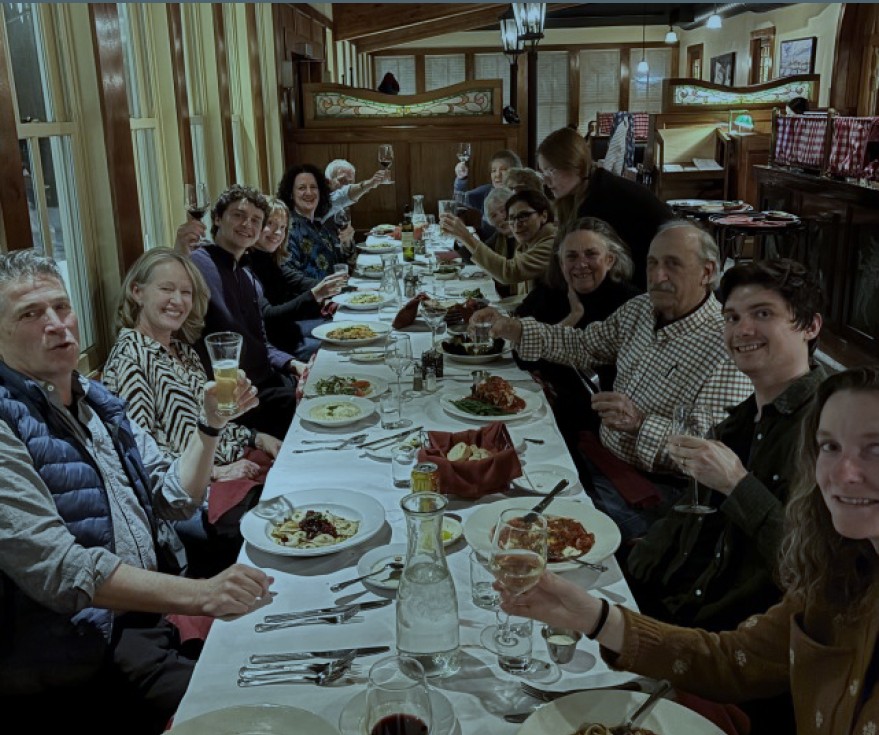
VICA members enjoy an Italian dinner together.
If you enjoyed this article, consider subscribing to my newsletter for more content and updates!

